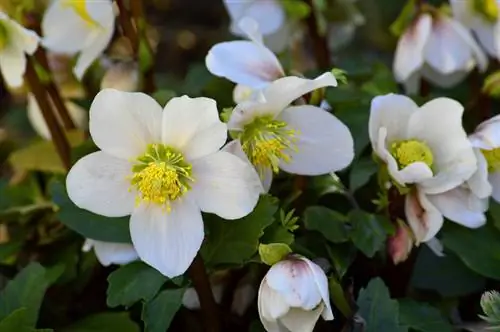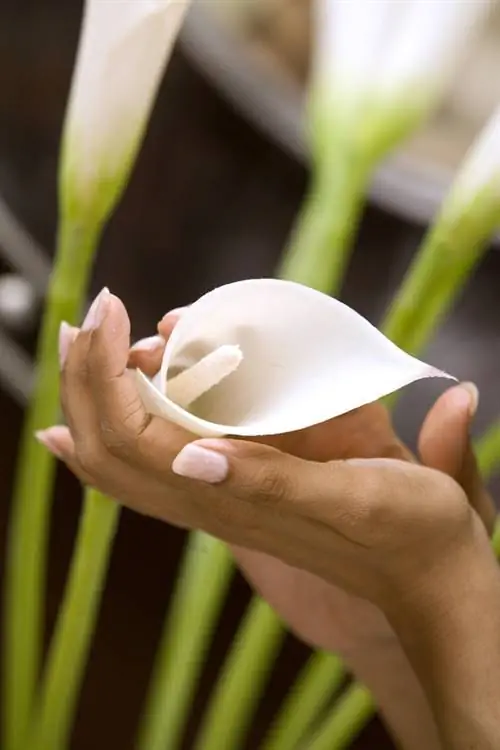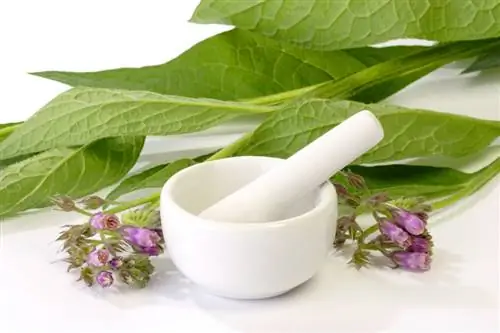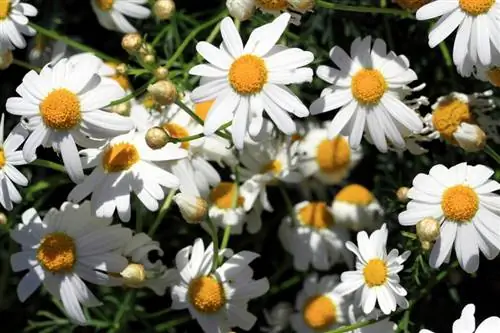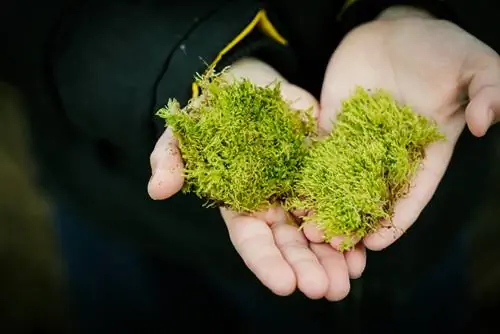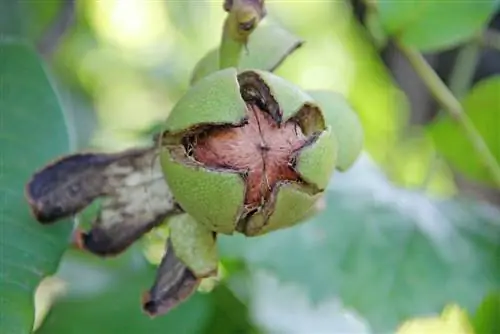- Author admin leonars@hobbygardeners.com.
- Public 2023-12-16 16:46.
- Last modified 2025-06-01 06:02.
The Christmas rose, also known as the snow rose or Christmas rose, belongs to the hellebore genus within the buttercup family. All representatives of this species are highly poisonous. Even small amounts can cause symptoms of poisoning in humans and animals.
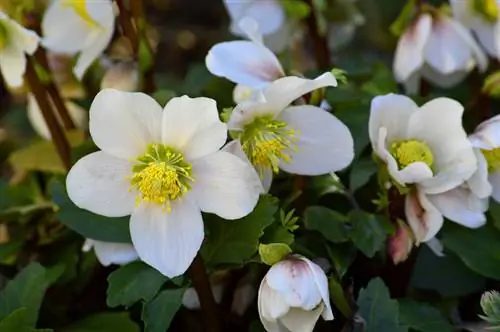
Is the Christmas rose poisonous?
The Christmas rose is poisonous in all parts of the plant and contains cardiotoxic bufadienolides, saponins, ecdysone and protoanemonin. Symptoms of poisoning include severe thirst, nausea, diarrhea, shortness of breath, inflamed oral mucous membranes, dilated pupils and cardiac arrhythmias. Protect yourself with gloves when grooming.
Christmas rose is poisonous in all parts of the plant
From the root to the leaves to the flower - the snow rose contains various substances that have toxic effects on humans and animals:
- Cardiotoxic bufadienolides
- Saponins
- Ecdysone
- Protoanemonin
The seed capsules in particular are highly poisonous. Consuming just three ripe capsules can cause significant symptoms.
Poisoning with Christmas rose is shown by:
- Strong thirst
- Nausea
- Diarrhea
- Shortness of breath
- Inflammation of the oral mucous membranes
- Dilated pupils
- Cardiac arrhythmias
Just contact with the plant sap can cause skin eczema in sensitive people. Those affected also complain of a scratchy throat after caring for the Christmas rose.
Never touch without gloves
You should take special care when caring for it. When caring for or cutting the snow rose, always protect your hands with gloves (€9.00 on Amazon). Do not touch your face while working.
Poisonings by Christmas roses rare
Poisoning by Christmas roses is rare, but the effects should not be underestimated, especially on small children.
If a family member has accidentally eaten parts of the snow rose or picked the flowers, seek advice from a poison control center and contact your family doctor.
Tips & Tricks
Even in ancient times, the Christmas rose was used as a remedy, for example against women's diseases. Even back then, the natural doctors knew about the toxicity of the plant and recommended digging it up quickly and protecting yourself from the “fumes”.

